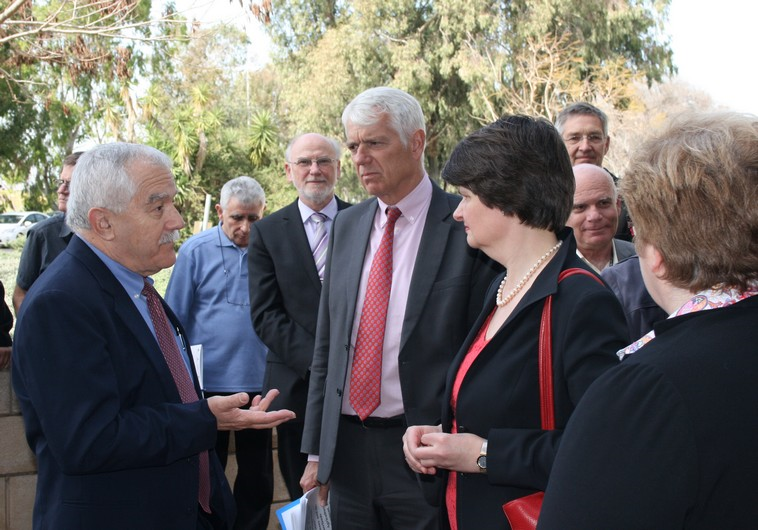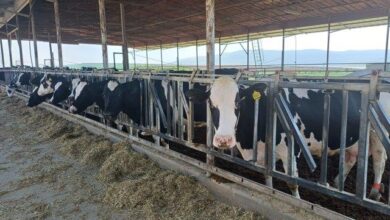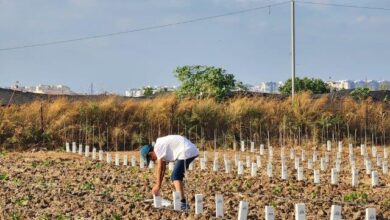EU-Israel Program in Veterinary Sector
In a launch ceremony held at the Agriculture Ministry offices in Beit Dagan on Thursday, EU and Israeli officials celebrated the beginning of the 18-month project.

The Israeli Agricultural Ministry announced this week a €1.03 million twinning project between the Israeli Agriculture Ministry’s Kimron Veterinary institute and German and Dutch partners. The Jerusalem Post reported on the program:
In a launch ceremony held at the ministry’s offices in Beit Dagan on Thursday, EU and Israeli officials celebrated the beginning of the 18-month project, which will be led by experts from the Friedrich- Loeffler-Institut, the Federal Research Institute for Animal Health in Germany. The goal of the project is for Israel to improve its compliance with international requirements regarding the supervision and control of animal diseases and food safety of products of animal origin, according to the program.
As part of the project, one expert from the Friedrich-Loeffler- Institut will come to the Kimron Veterinary Institute as the “resident twinning adviser,” working with colleagues at the Israeli institute as well as additional experts from Germany and the Netherlands. A series of working groups, workshops and training sessions – as well as study visits to Europe – will be critical components to the program, the project leaders explained.
The goal of the project is for Israel to implement “rapid, effective surveillance and control of prevailing infectious animal diseases as well as provision of reliable evidence to certify animals and products of animal origin as safe for human consumption, in compliance with European Union and World Organization for Animal Health (OIE) standards,” a statement about the program said.
This project will be the ninth such EU-funded twinning project in various fields in Israel – all of which have been part of the EU’s European Neighborhood Policy, according to the EU’s delegation to Israel. EU twinning projects allow neighboring countries to draft laws and regulations or reorganize existing institutional structures by employing models developed by EU member states, the delegation said.
In a speech delivered on Thursday to Israeli, German and Dutch participants at the launch ceremony, EU Ambassador to Israel Lars Faaborg-Andersen reminded audience members of the past twinning programs – including two others in the agriculture sector.
The previous program, which concluded in 2014, successfully strengthened the Israeli Veterinary Inspection Authority for Animal Health, he explained.
The program led to the adaptation in Israeli of the EU-developed “farm to fork” method, which ensures a higher level of food safety. In addition, he said, the program supported the establishment of a department within the Agriculture Ministry focusing exclusively on animal feed and its associated regulations, based on EU legislation and experience.
Faaborg-Andersen stressed to the Israeli members of the audience, however, that the twinning projects do not simply help Israel.
“Your innovative ideas and efforts should be commended, and also exposed to Europe,” he said. “Twinning projects are not a one-way street: Europeans are also learning a lot about the Israeli experience and expertise.”




